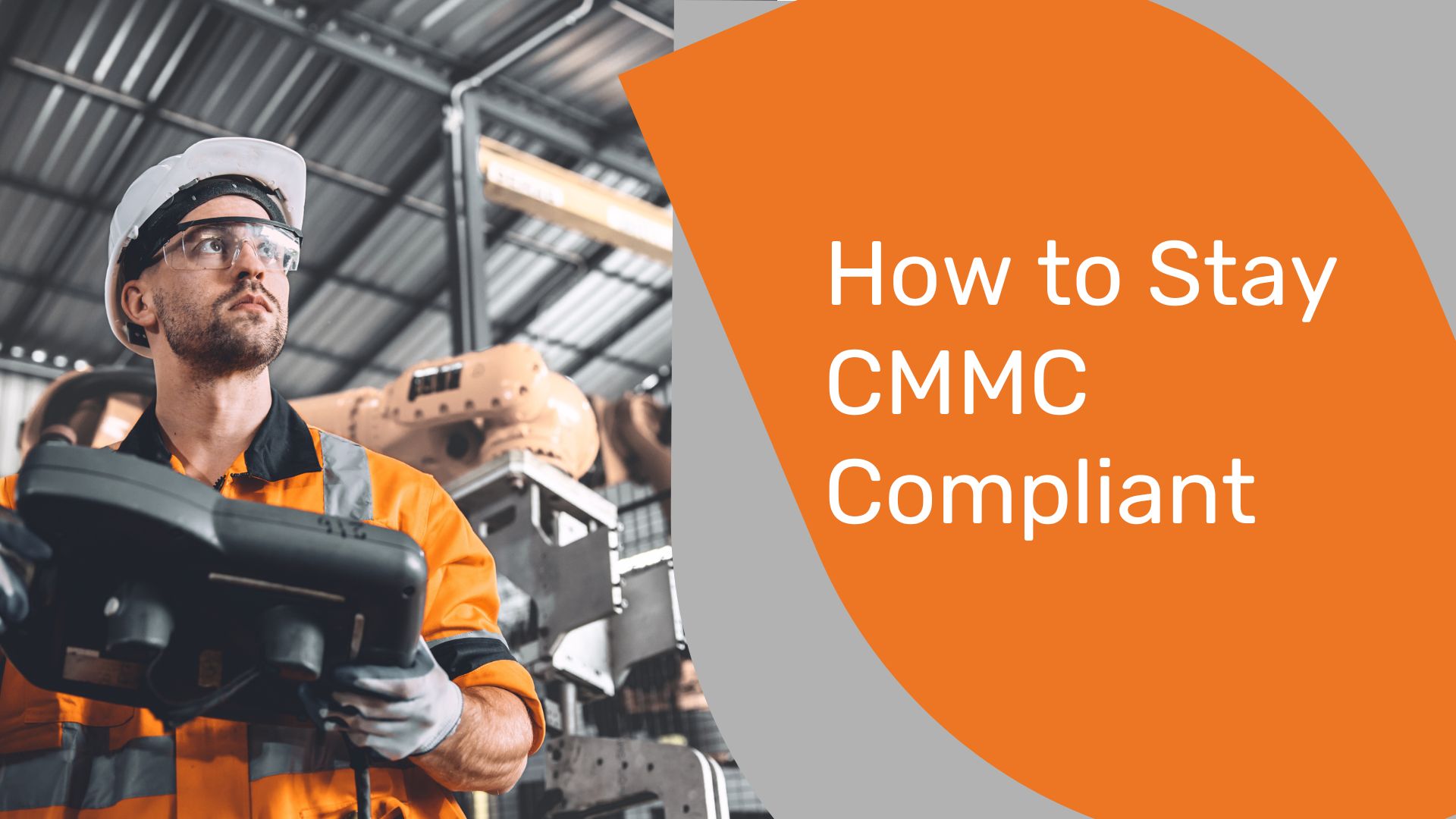With the increasing number of cyber-attacks, it’s crucial that manufacturers, take the necessary cybersecurity steps to protect your businesses and customers. One of the most important steps you can take is achieving CMMC compliance. In this article, we will walk you through the complexities of it in smart manufacturing and offer practical tips for navigating this process.
Understanding the Department of Defense’s CMMC Requirements
Before we dive into the complexities of CMMC compliance in smart manufacturing, it’s important to understand the Department of Defense’s (DoD) CMMC requirements. CMMC stands for Cybersecurity Maturity Model Certification, and it’s a unified standard for implementing cybersecurity across the defense industrial base (DIB). The DoD has identified five levels of CMMC certification, ranging from basic cyber hygiene to advanced cybersecurity practices.
Manufacturers must undergo an assessment by a certified third-party assessor organization (C3PAO). The assessment will evaluate the manufacturer’s cybersecurity practices and assign a CMMC level based on the results. Manufacturers must achieve the required CMMC level to bid on DoD contracts.
The Importance of Cybersecurity Maturity Model Certification
It is critical for manufacturers who want to do business with the DoD. However, it’s also important for manufacturers who don’t have DoD contracts. Achieving CMMC compliance demonstrates a commitment to cybersecurity and can help manufacturers build trust with customers and partners.
CMMC compliance also helps manufacturers identify and mitigate cybersecurity risks. By undergoing an assessment, manufacturers can identify areas where they need to improve their cybersecurity practices. This can help prevent cyber attacks and protect sensitive information.
Challenges
Achieving CMMC compliance in smart manufacturing can be challenging. Smart manufacturing involves the use of advanced technologies, such as the Internet of Things (IoT), artificial intelligence (AI), and data analytics. These technologies can create new cybersecurity risks that manufacturers may not be prepared for.
Additionally, manufacturers may struggle to implement the necessary cybersecurity practices across their supply chain. It requires manufacturers to ensure that their suppliers and partners also meet the necessary cybersecurity standards.
Best Practices
Despite the challenges of achieving CMMC compliance in smart manufacturing, there are several best practices that can help manufacturers navigate this process.
First, manufacturers should conduct a thorough risk assessment to identify potential cybersecurity risks. This assessment should include a review of existing cybersecurity practices and an evaluation of the cybersecurity risks associated with smart manufacturing technologies.
Second, manufacturers should implement a cybersecurity framework, such as the National Institute of Standards and Technology (NIST) Cybersecurity Framework. This framework provides a set of guidelines and best practices for managing cybersecurity risks.
Finally, manufacturers should work with a CMMC compliance expert. These experts can provide guidance and support throughout the assessment process and help manufacturers identify areas where they need to improve their cybersecurity practices.
Benefits
Achieving CMMC compliance in smart manufacturing offers several benefits. First, it helps manufacturers demonstrate a commitment to cybersecurity and build trust with customers and partners.
Second, CMMC compliance can help manufacturers identify and mitigate cybersecurity risks. By undergoing an assessment, manufacturers can identify areas where they need to improve their cybersecurity practices and implement the necessary changes.
Finally, achieving CMMC compliance can help manufacturers win DoD contracts. This can open up new business opportunities and help manufacturers grow their businesses.
Tools and Resources
There are several tools and resources available to help manufacturers achieve CMMC compliance in smart manufacturing. The CMMC Accreditation Body (CMMC-AB) provides a list of certified third-party assessor organizations (C3PAOs) that can conduct the necessary assessments.
Additionally, the DoD provides guidance on CMMC compliance, including the CMMC model and a self-assessment handbook. Manufacturers can use these resources to better understand the requirements for achieving CMMC compliance.
Working with CMMC Compliance Experts
As mentioned earlier, working with a CMMC compliance expert can be beneficial for manufacturers. These experts can provide guidance and support throughout the assessment process and help manufacturers identify areas where they need to improve their cybersecurity practices.
When choosing a CMMC compliance expert, manufacturers should look for someone with experience in smart manufacturing. This person should also have a deep understanding of the CMMC requirements and be able to provide practical guidance for achieving compliance.
Future Trends in CMMC Compliance for Smart Manufacturing
As technology continues to evolve, we can expect to see new cybersecurity risks emerge in smart manufacturing. Manufacturers will need to stay up-to-date on the latest cybersecurity threats and implement the necessary controls to protect their businesses.
Additionally, we may see new standards emerge for cybersecurity in smart manufacturing. These standards may be more specific to the unique risks associated with smart manufacturing and may be tailored to specific industries or technologies.
The Importance of Prioritizing CMMC Compliance in Smart Manufacturing
Achieving CMMC compliance in smart manufacturing is critical for protecting businesses and customers. By understanding the DoD’s CMMC requirements, identifying potential cybersecurity risks, and implementing the necessary controls, manufacturers can ensure that they are prepared to defend against cyber attacks.
While achieving compliance can be challenging, working with an expert and leveraging available tools and resources can help manufacturers navigate this process. By prioritizing cybersecurity and achieving CMMC compliance, you can protect your businesses and build trust with your customers and partners.
Are You Ready For AI?
Adopting AI is a transformative technology that increases productivity, streamlines data analysis and so much more. Our AI Adoption Guide helps you determine if your team is ready for this tool and dives deep into how to implement AI, how to avoid common mistakes and much more.
Download the guide now to see the benefits of AI in action at your organization.


